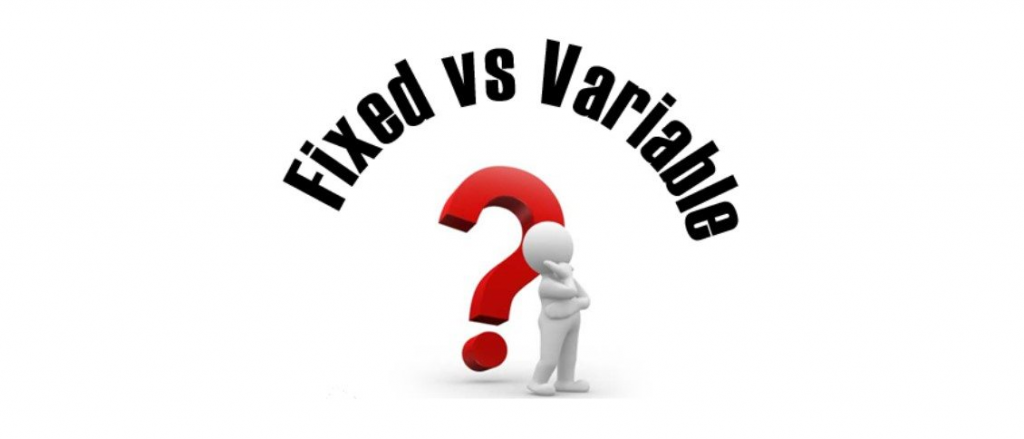
So, I wanted to talk to you today about the difference between a fixed and variable loan and why we would make a choice on one or the other. So a fixed loan means that I might fix it in for a period of time on my home loan, 4%, it might be fixed for three years, maybe up to five years, maybe even one year, but it won’t change through that time and it’s guaranteed, ok. A variable, is quite the opposite. I might start at 4%, if there’s a rate reduction it might drop to 3.75%, if there’s a rate increase it might go to 4.25%. So I roll with the punches based on what the Reserve Bank do, but then what the banks pass on or don’t pass on, ok. So, why would I do one or the other? Let’s talk about four key points that you must consider, or get answers to when you’re deciding.
The first one is ‘do I want to offset money’? So, if I’ve got a loan and then I’ve got an offset account sitting next to it, in a variable
situation you can put as much money into that offset as you want, which offsets the interest on that particular loan, calculated daily. In a fixed loan situation, however, there are not many lenders that allow you to offset money on that loan that you’ve got with them over that fixed period, right. If it does, it’ll probably cap that amount. It might be $20k that you can offset at any one time. So, take that into consideration if you’ve got a large sum of money that you’d like to offset, then a fixed loan may not be the option for you.
The second part is ‘how are the current rates trending’? Now what I mean by that is in the last two or three four years, the rates have been trending downwards, right, and they at the moment they don’t show real signs of actually increasing. So what does that mean for you? On the other hand, if rates were trending upwards, then you may make a different decision based on potentially fixing in and covering your losses in the event of something rising, okay. So how are the rates trending? Downwards, upwards, are they stable etc.
The third part is, ‘do I need certainty in my life’? Now, this is a really common one that I work with clients on. One income down to or up to two or maternity leave or part-time income versus full-time income, I’ve got something ahead in the next 12 months I need to forecast in my life and I need absolute certainty, my job position is not that strong etc. So, if I need certainty, then we may be more likely to put a fixed loan period in and that means that my monthly repayments are, it’s a guaranteed amount and that’s not going to fluctuate. In a variable situation, absolutely, that fluctuates if we get a rate rise or rate of reduction, okay. So knowing what that is looking like for you in the next one to five years. The last point is, ‘how do they both compare’? Usually there is a difference between the fixed rate and the variable rate from any lender, so, which one’s going to be more attractive for you at the time? Now, traditionally the banks don’t lose, so if the fixed rate is lower than the variable rate at any one lender, then there’s a reasonable chance that the variable rates probably not going to go anywhere up, anytime soon. On the other hand, if it’s the opposite way around, then it may mean that the variable rate might be on an upward trend, right. Just my assessment of it any case, but have a look at those four indicators, get answers to them, get clarity around all of that and then take action.
